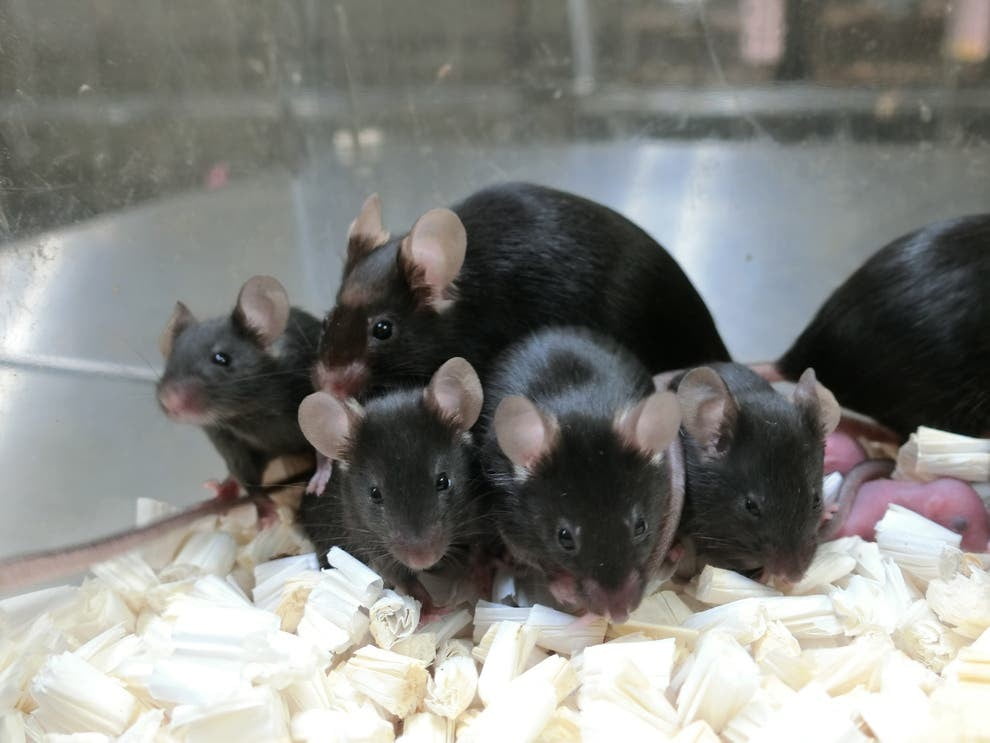Healthy mice — “charmingly referred to as space pups” — have been born from sperm that was freeze-dried before spending nearly six years on the International Space Station (ISS).
Questions remain about fertility in space, so the research on the frozen mouse sperm is important. It’s not clear whether humans can get pregnant in space, or if traveling to space while pregnant would harm a fetus. Since long-term plans call for humans to occupy bases far from Earth, fertility is a major concern.
There are two prominent problems with fertility in space: Microgravity causes sperm to behave strangely, and radiation present in space is potentially harmful. On Earth, we are protected from radiation from space by the planet’s magnetosphere, but as humans travel farther from Earth, the amount of radiation increases.
The mouse sperm experiment looked at the radiation hazard in particular. Researchers took the sperm from mice and sealed it in vials, which were then freeze-dried. Some of the material was sent to the ISS, while more stayed on Earth. The samples spent up to five years and 10 months on the ISS and were returned to Earth for testing.
The good news for those hoping for space colonies one day is that the sperm was able to be used to impregnate mice on Earth, and the pups born from the space sperm were healthy. Even the children of these pups were healthy, too. “These space pups did not show any differences compared to the ground-control pups, and their next generation also had no abnormalities,” the researchers wrote in a research paper.
In their paper, the researchers write that frozen cells intended for reproduction likely will head to space in the future, given the need to transport not only humans but also pets and domestic animals. Keeping a population healthy requires genetic diversity, so freezing and packing sperm and/or eggs would help to ensure enough genetic variety to sustain populations away from Earth.
The authors even speculate that freezing genetic material could be important for the preservation of life in the event of environmental destruction on Earth. Natural disasters also could threaten humans and other populations, and the researchers suggest that sending freeze-dried genetic material into space could be a way to preserve species for the future.
Editors’ Recommendations

